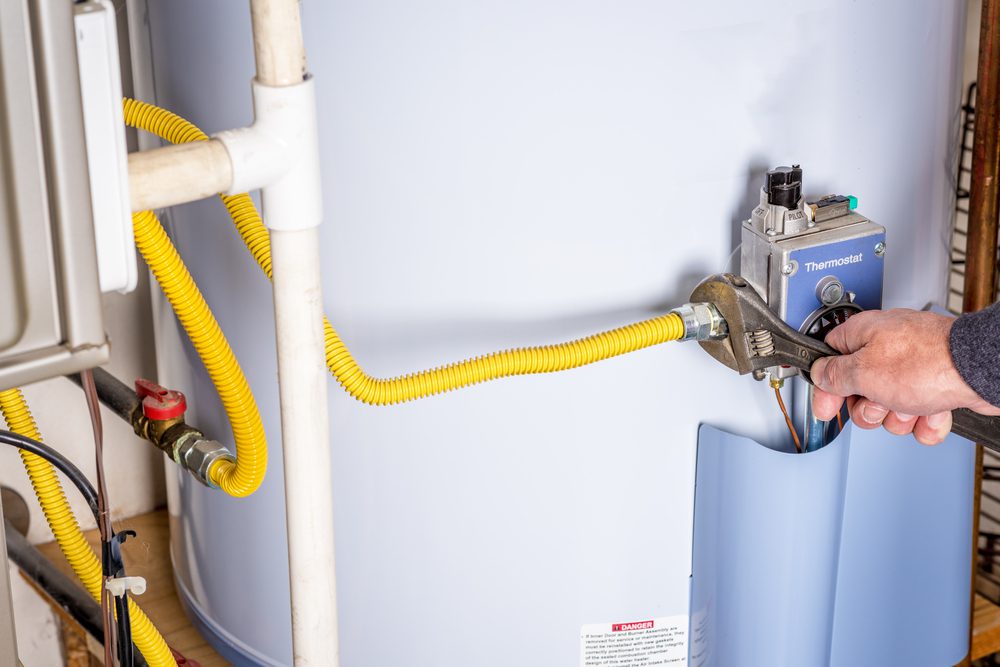Dealing With Common Water Heater Challenges
Dealing With Common Water Heater Challenges
Blog Article
Here in the next paragraph yow will discover lots of good information and facts all about Common Problems with Your Home Water Heater.

Visualize beginning your day without your regular warm shower. That currently establishes a bad tone for the remainder of your day.
Every house needs a reliable water heater, but only a few recognize just how to handle one. One simple way to keep your water heater in leading form is to look for faults frequently and repair them as quickly as they appear.
Bear in mind to switch off your water heater prior to smelling around for faults. These are the water heater mistakes you are most likely to encounter.
Water too warm or too chilly
Every hot water heater has a thermostat that figures out how warm the water gets. If the water entering into your home is also warm despite establishing a convenient maximum temperature, your thermostat might be faulty.
On the other hand, too cold water may be because of a fallen short thermostat, a broken circuit, or inappropriate gas flow. For instance, if you make use of a gas hot water heater with a busted pilot light, you would obtain cold water, even if the thermostat is in perfect problem. For electrical heaters, a blown fuse might be the wrongdoer.
Not enough warm water
Water heaters been available in numerous sizes, relying on your warm water demands. If you lack hot water before everyone has actually had a bath, your water heater is also tiny for your family size. You must consider mounting a larger water heater container or opting for a tankless hot water heater, which occupies less area and is a lot more resilient.
Weird noises
There go to the very least five type of sounds you can speak with a hot water heater, but one of the most common analysis is that it's time for the hot water heater to retire.
Firstly, you must recognize with the regular seems a water heater makes. An electrical heater might sound different from a gas-powered one.
Popping or banging sounds usually mean there is a piece of sediment in your containers, and it's time to clean it out. On the other hand, whistling or hissing audios might just be your valves letting some stress off.
Water leakages
Leakages can originate from pipes, water links, shutoffs, or in the worst-case circumstance, the storage tank itself. In time, water will certainly rust the tank, and also discover its way out. If this occurs, you need to replace your water heater asap.
Nonetheless, before your adjustment your entire container, make sure that all pipelines are in location which each valve functions perfectly. If you still need help identifying a leak, call your plumber.
Rust-colored water
Rust-colored water means among your hot water heater elements is corroded. It could be the anode rod, or the storage tank itself. Your plumber will have the ability to determine which it is.
Lukewarm water
No matter how high you established the thermostat, you will not obtain any kind of warm water out of a heating system well past its prime. A hot water heater's efficiency might lower with time.
You will certainly also get warm water if your pipelines have a cross connection. This implies that when you turn on a tap, hot water from the heater flows in along with normal, cold water. A cross connection is simple to spot. If your warm water faucets still pursue shutting the hot water heater valves, you have a cross connection.
Discoloured Water
Corrosion is a significant cause of dirty or discoloured water. Rust within the water tank or a falling short anode rod might create this discolouration. The anode rod secures the tank from rusting on the inside as well as need to be examined annual. Without a pole or an appropriately working anode rod, the hot water swiftly corrodes inside the container. Contact a specialist water heater professional to determine if replacing the anode pole will fix the issue; if not, replace your hot water heater.
Final thought
Ideally, your water heater can last ten years prior to you need an adjustment. However, after the 10-year mark, you might experience any one of these mistakes much more consistently. At this point, you must include a new water heater to your spending plan.
How To Troubleshoot 3 Common Water Heater Problems in Twin Cities
The Water Heater Is Leaking
A leaky cold water inlet valve A loose pipe fitting A leaky temperature and pressure relief valve A corroded anode rod A cracked tank Turn Off Your Water Heater:
Shut off your gas water heater by turning the gas valve on the unit to the “OFF” position. Shut off your electric water by switching its power off at your electrical panel. Look for a two-pole breaker labeled “water heater” and turn it to the “OFF” position. Move the ball valve connected to the water heater to be perpendicular to the piping at a 90° angle. Look for the Leak:
Depending on whether the water is coming from the tank's top or bottom, you’ll want to look for the leak in different locations.
If the leak comes from the top of the tank, carefully look for water escaping from the cold water inlet valve or loose pipe fittings. Rusted hot and cold water valves can have loose connections with the tank, with water leaking out of them.
https://mspplumbingheatingair.com/blog/how-to-troubleshoot-3-common-water-heater-problems
I hope you enjoyed reading our topic on Common Problems with Your Home Water Heater. Thank you so much for spending some time to read our piece. Enjoyed our write up? Please share it. Help someone else locate it. I treasure reading our article about Water Heaters Problems.
Request Appointment Report this page